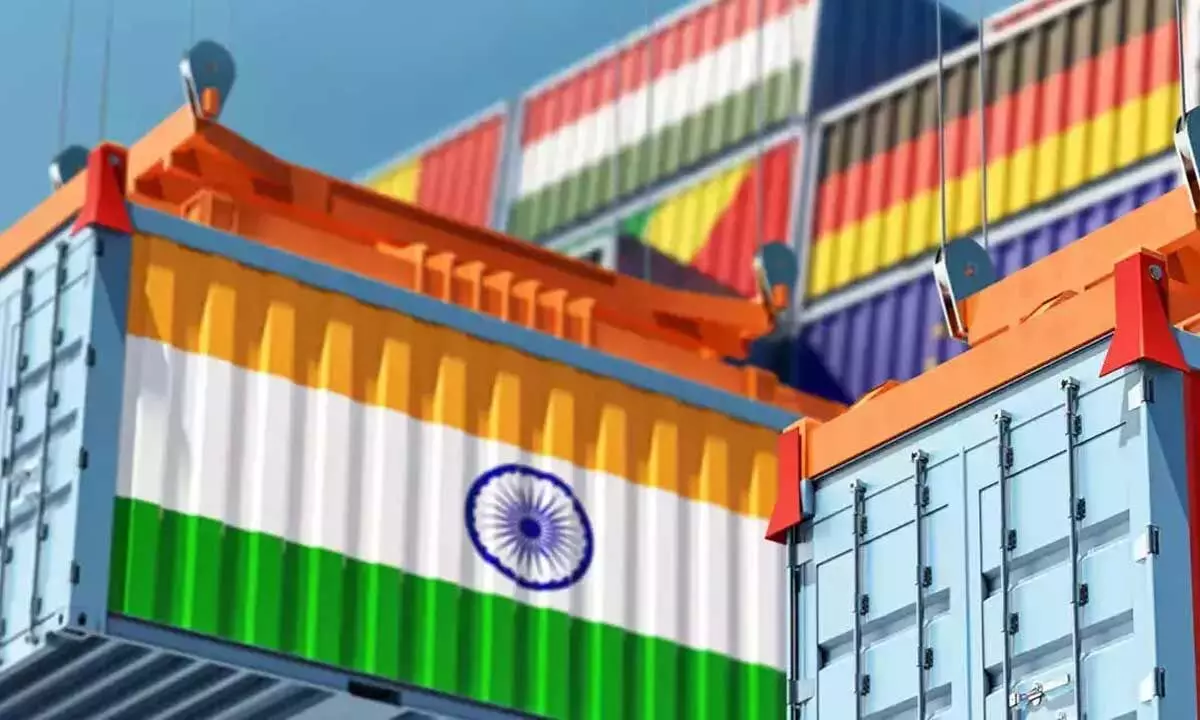India in FTA drive to ensure two-way trade
India has entered into a series of FTAs this year with world’s leading economies and are negotiating with the UK, Israel and Canada
image for illustrative purpose

Trade deal
• The FTAs will further push India's integration into the global economy as a benevolent player creating a win-win model
• The country's trade policies, various reforms by the govt and the inherent economic strength of the Indian economy have led to its standing as one of the most coveted destinations for foreign investments in the world
New Delhi: India has entered into a series of Free Trade Agreements (FTA) this year with world's leading economies and is negotiating with the UK, Israel and Canada that would open a plethora of economic opportunities and create jobs not just in India, but also globally.
The FTAs will further push India's integration into the global economy as a benevolent player creating a win-win model. The India-UK FTA when concluded will be major milestone between the world's two leading economies. During his recent visit to India, UK Prime Minister Boris Johnson pushed for closing the negotiations for an FTA by this October.
India has emerged as one of the most important players in the global economic landscape. The country's trade policies, various reforms by the government and the inherent economic strength of the Indian economy have led to its standing as one of the most coveted destinations for foreign investments in the world.
Between January-October 2021, India exported goods worth $325 billion representing a 44 per cent year-on-year growth. FTAs have allowed an opportunity to Indian exporters to compete on a more level playing field with local businesses from other countries due to reduced trade barriers, tariffs and duties. Through these FTAs, India plans to tap into the global demand, particularly in developed countries.
Minister for Commerce and Industry Piyush Goyal has stated that "India will enter into an FTA only if it is beneficial to the country. FTAs are supposed to be about two-way traffic, so India will look for reciprocal benefits and favourable market conditions from other countries. India will attempt to enter into FTAs with democratic nations that share the same values as them and are conducive to the mutual growth of both countries".
India's FTA with Australia concluded in April and a Comprehensive Economic Partnership Agreement (CEPA) with the UAE in February demonstrate this strategic aspect of economic partnerships. India's goods exports to Australia were worth $6.9 billion and imports about $15.1 billion in 2021.
The India-Australia FTA will provide zero-duty access to the bulk of India's exports to Australia (96 per cent), including engineering goods, gems and jewellery, textiles and apparel, and leather. After five years, this will be expanded to 100 per cent of Indian goods.
In March, New Delhi and Ontario agreed to formally re-launch negotiations for the India-Canada Comprehensive Economic Partnership Agreement (CEPA). The two nations committed to strengthen their trade and commercial ties through enhanced partnerships and cooperation in certain identified areas, such as agro-products, chemicals, footwear, textiles, automobiles, energy, electronics, minerals and metals, urban development, information technology and tourism. The two sides also noted the importance of the movement of professionals and skilled workers, students and business travellers in strengthening the bilateral economic partnership.
Meanwhile, India and Israel are engaged in FTA talks and want to sign a deal by mid-2022 as the year marks 30 years of formal diplomatic ties. Total merchandise trade between India and Israel amounted to $4.67 billion in FY 2020-21.
India and the EU also restarted their FTA negotiations in goods and services in early 2021 after a gap of eight years. The two regions aim to work out pacts in investments and geographic indications parallel to FTA engagement. In July 2020, India revived talks with the SACU bloc for a preferential trade agreement.
India is seeking closer manufacturing and industrial investment ties with Namibia, and its sectors of interest cover agriculture, irrigation, renewables, ICT, pharmaceuticals and medical supplies. India-Namibia trade in 2018-19 amounted to $135.92 million with Indian exports worth $82.37 million and imports valued at $53.55 million.

